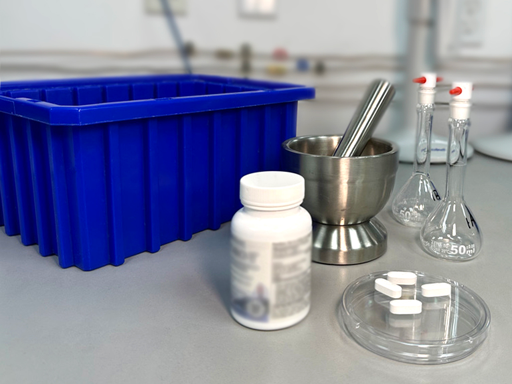Reviewed and Approved by Shelly Blackwell, Senior Director, Dietary Supplement and Tobacco, EAS Consulting Group
1-Minute Summary
- The FDA’s most common 21 CFR 111 compliance observations involve missing component and finished product specifications, as well as deficient master manufacturing and batch records.
- Manufacturers must test each dietary ingredient to verify identity—CoAs alone aren’t enough.
- Component specifications must cover identity, purity, strength, composition, and potential contaminants to ensure finished product specifications are met.
- Batch production records must comply with all requirements in Part 111 Subpart I.
Why 21 CFR 111 Compliance Deserves Your Full Attention
21 CFR 111 is the FDA’s cGMP regulation for dietary supplements. It governs every aspect of manufacturing and quality control, from raw materials to finished products. Whether you’re producing your own supplements or working with contract manufacturers, 21 CFR 111 compliance is your responsibility.
Despite the regulations being in effect for several years, the same observations seem to appear on the FDA’s list each year. And these aren’t insignificant errors—they’re risk factors for product recalls, 483s, warning letters, and loss of consumer trust.
Let’s look at the most frequent 21 CFR part 111 compliance observations.
Top 5 Most Frequent 21 CFR 111 Compliance Observations
The FDA publishes a database of Inspection Observations categorized by Product or Program Area, including Foods (includes Dietary Supplements). It’s a great resource for checking what the top observations are so your company can be prepared in case of an audit.
Here are the top 5 Inspection Observations that relate specifically to 21 CFR part 111, cGMPs for the supplement industry:
1. Failure to Establish Product Specifications
Citation: 21 CFR 111.70(e)
“For each dietary supplement that you manufacture you must establish product specifications for the identity, purity, strength, and composition of the finished batch of the dietary supplement, and for limits on those types of contamination that may adulterate, or that may lead to adulteration of, the finished batch of the dietary supplement to ensure the quality of the dietary supplement.”
We all know the importance of establishing product specifications, and yet it’s the top FDA observance year in and year out. This requirement must be clearly defined and well-documented to ensure compliance and product quality.
You must define the standards your finished product must meet, and this includes compliant labeling and assurance of product safety. Without product specifications, there is no baseline to verify that your supplement is compliant and safe to release.
Do you need help establishing specifications for your raw materials and finished products? Our 21 CFR 111 consulting experts at EAS Consulting Group, a Certified Group company, can help.
2. Failure to Establish Specifications for Component Identity
Citation: 21 CFR 111.70(b)(1)
Again, failure to establish specifications, this time for component identity, appears high on the list of observations.
You must have a written identity specification for every component you use, meaning any substance used in manufacturing, even if it doesn’t appear in the final product.
Specifically for dietary ingredients, each lot received needs to be tested.

3. Failure to Define Purity, Strength, and Composition Specs for Components
Citation: 21 CFR 111.70(b)(2)
In addition to a component identity specification mentioned above, you must establish component specifications that are necessary to ensure that specifications for the purity, strength, composition, and potential contaminants of dietary supplements manufactured using the components are met. These specifications help prevent adulteration, ensure ingredient consistency, and support product quality standards.
We further explain dietary supplement component specifications and testing requirements here.
4. Incomplete Batch Production Records
Citation: 21 CFR 111.255(b)
A batch production record (BPR) must include complete information related to the production and control of the batch and must align with the master manufacturing record. Subpart I of 21 CFR Part 111 clearly lists all requirements of a batch production record, and the FDA frequently cites firms for missing or inconsistent entries. Accurate batch records are essential for traceability, FDA inspections, and confirming GMP compliance.
5. Failure to Verify the Identity of Dietary Ingredients
Citation: 21 CFR 111.75(a)(1)(i)
“You must conduct at least one appropriate test or examination to verify the identity of any component that is a dietary ingredient.”
Relying solely on a supplier’s Certificate of Analysis is insufficient under the regulation. Unless you submit a petition to the FDA to request an exemption, which has not been historically accepted, laboratory testing to verify component identity is a requirement.
If you need supplement identity testing, Certified Laboratories’ supplement testing labs can help.
Who Is Responsible for 21 CFR 111 Compliance?
If your company’s name appears on a dietary supplement label, or if you control any part of production or distribution, you are responsible for 21 CFR 111 compliance. This includes:
- Manufacturers
- Contract manufacturers
- Labelers and packagers
- ”Own Label Distributors” or brand owners
Outsourcing production does not eliminate your responsibility to comply with 21 CFR part 111.
Understand the Full Scope of 21 CFR 111
What we’ve covered here represents only a fraction of the requirements outlined in 21 CFR 111. The regulation spans a wide range of processes, procedures, and documentation standards, each designed to help ensure the manufacture and distribution of safe, high-quality dietary supplements.
It’s critical that your Quality Unit fully understands the scope of the regulation and has the authority, training, and resources needed to implement it effectively.
In addition to the areas we’ve discussed, 21 CFR part 111 includes several Subparts that include detailed requirements for…
- Personnel hygiene and training
- Production process and control
- Facility sanitation and environmental controls
- Cleaning, maintenance, and calibration of manufacturing equipment
- Complaint investigations and product recalls
- Handling and evaluation of returned products
- Retention, review, and access of records
- Quality control responsibilities
- Laboratory operations
- Packaging and labeling
- Holding and distribution
Each of these elements plays a vital role in maintaining control over your operations and ensuring your supplements meet both regulatory and consumer expectations.

Need Help With 21 CFR 111 Compliance?
Certified Group companies provide all the services you need for 21 CFR part 111 compliance, including regulatory consulting and laboratory testing.
Certified Laboratories
Our ISO 17025-accredited supplement testing labs provide services that support your 21 CFR 111 compliance efforts:
- Identity testing using validated methods
- Verification of supplier CoAs
- Finished product and raw material testing using validated methods
- Support for specification development
EAS Consulting Group
EAS Consulting Group is a leader in 21 CFR 111 consulting and regulatory strategy. We support your team with:
- Full gap assessments
- Development and review of SOPs, MMRs, specifications, and BPRs
- Training
- FDA readiness programs, including mock audits
- Responses to FDA deficiencies
Whether you need help building your quality system or improving your documentation, Certified Group companies can help you stay compliant and inspection-ready.
